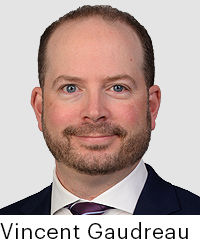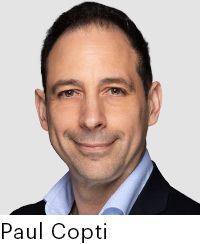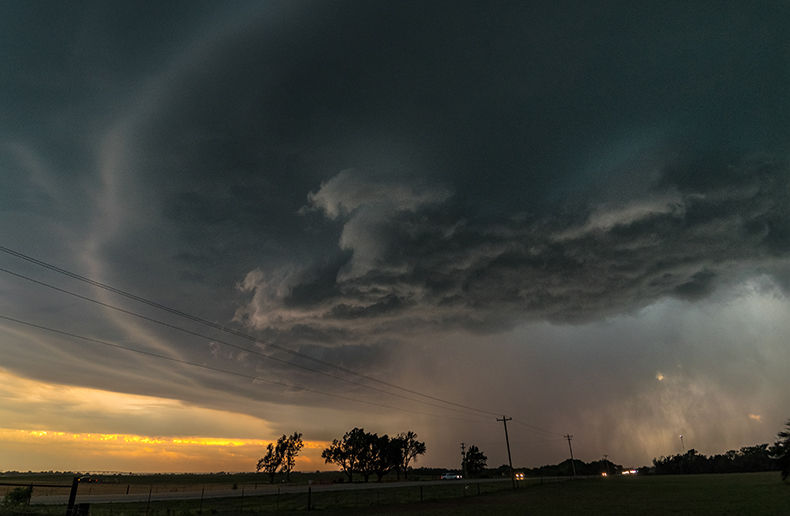
Canada experienced its worst catastrophic loss year in 2024, with four extreme weather events. Despite this, interviews conducted by Insurance Portal with property and casualty insurance brokers show that the market remains soft in the first quarter of 2025, at least for commercial lines.
These four events, three of which took place in densely populated urban areas, cost nearly $8 billion in insured damage, but it was individuals who were hit hardest. Tens of thousands of claims were generated in the Montreal region following the passage of Storm Debby on August 9, 2024.
“No insurer can respond quickly to such an avalanche," says Louis-Thomas Labbé, Gallagher's Quebec broker, citing the January 1998 ice storm as an example. “You can't have a service promise based on such an event,” he says.
Labbé has 45 years' experience in the industry. The firm has 35 offices across Canada, many of which were affected by floods in Toronto and Montreal, hail in Calgary or forest fires in Jasper. In Quebec, some 85% of Gallagher's premium volume comes from commercial lines.
He notes that insurers have greatly improved their claims handling services. "If you find yourself with several thousand customers with claims in Laval, Terrebonne, etc., we say, ‘They're insured…What's the claim? Pay up, go ahead.’ That's what the insurers did," he says.
A new cycle
Labbé says he's not surprised by the current cycle, which is more favorable to companies that need to insure their property and liability. “The market has become very fragmented by country, by product range, by specialty,” he says.
The day before the interview, Intact Financial Corporation published its fourth-quarter financial results and its balance sheet for 2024. Despite the avalanche of claims received during the four weeks of last summer, the company posted profits of $2.3 billion and reported a combined ratio of 92.2% in 2024, 2 percentage points lower than in 2023. Other public insurers also posted good results, despite this catastrophic year.
What makes insurers react? “It's when the cumulative claims of a given year start to hit the capital," he explains. That's what happened in 2018, when insurers tightened the screws and tidied up their portfolios after 15 years of a soft P&C market. “There was inflation, but premiums and insurable values weren't adjusted.”
“There's now a lot of money in the system," he adds. Reinsurers renewed reinsurance treaties on January 1. "Prices are down. There is excess capacity." The oligopoly formed by reinsurers is made up of “the smart guys,” he says. Their actuaries have raised their risk exposure limits, forcing insurers to manage their capacity more tightly.
Climate-related disasters are occurring all over the world, and are increasing in severity and intensity. "I get the impression that the industry won't be able to absorb this on its own. Governments are going to have to put up public funds," he says, leaving it to insurers to cover the biggest losses.
Property and casualty insurance premiums are rising due to inflation in reconstruction costs and rising insurance values. His advice to policyholders: "Shop around. Brokers don't deal with just one insurer."
He looks after the personal insurance needs of some of the firm's large corporate clients. "They, too, are seeing rising home and auto premiums. A number of insurers, particularly companies that distribute their products directly, are running aggressive advertising campaigns. "They know which market they want to target, and then they price accordingly. You call them back three months later, and the pricing has changed."
The transition
Louis-Thomas Labbé sold GPL to Gallagher in 2017. He remained Chair of the Board until Dec. 31, 2024. The firm is no longer a separate company and has been merged with Gallagher. He remains as a senior advisor. "I have a one-year mandate. At this point, it's one year at a time," he says.
Gallagher continues to operate as before, with everyone keeping their jobs. Seven years after the transaction, Labbé is pleased to have chosen this firm rather than another to ensure the continuity of his business. "Gallagher is still run by brokers.”
On his most recent trip to London with some of his clients, he had the opportunity to meet the company's three main executives, who also continue to support their biggest clients. "I've worked for some of our biggest competitors, and their managers don't do that," notes Labbé.
Same observation

Broker Vincent Gaudreau, CEO of Fort Assurances et services financiers, also notes that, despite the catastrophes of summer 2024, insurers are posting excellent results in several lines of business. "In commercial lines, the market is still relatively soft. Insurers have an appetite for writing new risks. There is still competition," he says.
The commercial real estate market, one of Gaudreau’s favorite sectors, has also stabilized. "Three or four years ago, I'd get a call every week from a condominium corporation that couldn't find an insurer. I can't remember the last time that happened."
Stability has been restored because insurers have increased premiums and deductibles, but also because condo associations have improved building management. "This has been reflected in claims rates. The emergence of water leak detection systems also helps in some cases," he adds.
Although not many insurers are willing to insure condominiums, "we're able to get quotes now. If the condo association has a good track record, in many cases I'll work for a quote from another insurer," says Gaudreau.
He points out that, with the exception of Storm Debby, which mainly affected the personal home insurance sector and single-family homes, Quebec was spared extreme weather events during the years 2020 to 2024. “We've been relatively lucky in Quebec, touch wood,” he adds, noting that the years 2017 to 2019 had been bad for insurers' underwriting results.
Productivity

Paul Copti, Senior Vice President, Business Services at Lussier, points out that the main impact on companies in connection with major losses was rather on the group plan side. “Many employees had to take time off work to manage their claims,” he says.
The firm's Montreal-area branches have been busy dealing with Debby's aftermath, mainly in personal lines. “Generally speaking, from the point of view of mental and even physical availability, when people have to take care of their home first, there's a drop in productivity for their employer, which is quite understandable,” says Copti.
Lussier's 21 offices employ some 750 people, including around 450 in commercial insurance. Some 30,000 companies use the services of Lussier brokers, 40% of them for their employee benefits needs.
This article is a Magazine Supplement of the April issue of the Insurance Journal.







